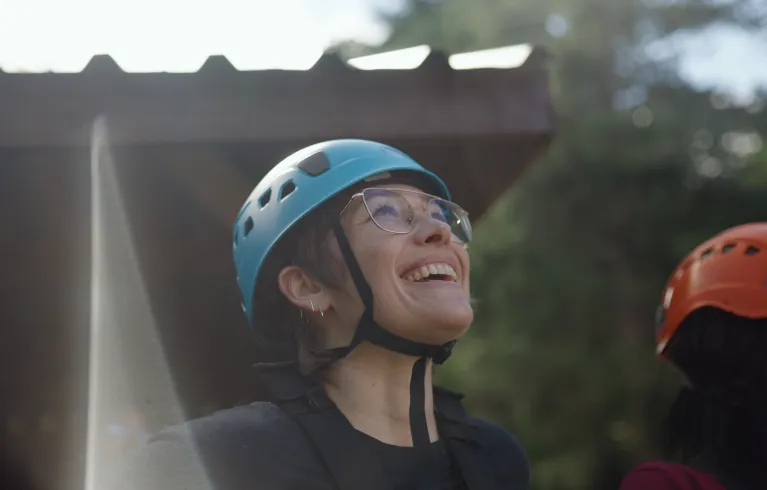
Key information
Publication type: General
Contents
5 sections
The programme
Rise Up is a leadership development programme for London-based youth practitioners. Rise Up aims to enhance youth practitioners’ skills, confidence, and experience to better support vulnerable young people in London.
In addition, the programme seeks to develop strengthened youth work practice; more effective organisations; and a better-connected sector. Just under 300 individuals completed the programme.
This report summarises an evaluation of the first 3 years of Rise Up conducted by m2 consultants, an independent evaluation partner.
Methodology
The process and outcomes focused evaluation employs a mixed methods approach, including qualitative interviews, focus groups, baseline, midline and end of programme user surveys and case studies.
Although the evaluation methodology means impact cannot be robustly attributed, the report outlines promising progress across individual outcomes and their impact on the wider sector.
Key findings
For all cohorts in the study, the evaluation found that youth practitioners reported increased skills, confidence, and networks:
- Participant from all year groups reported an increase in professional confidence, feeling better equipped to undertake their roles and manage conflict.
- Participants from all three-year groups noticed they had developed and deepened their professional skills and practice in relation to the young people they work with.
- By the end of Year 3, the number of participants saying they had networks they could approach for support and advice increased.
- 80 per cent of managers surveyed believed that the Rise Up programme has made a positive difference to their organisations as well as to the individual participants.
- Rise Up Lite, a shortened version of the course, was found to be an effective means of delivering core course content to practitioners who would not typically access this kind of training.
- Alumni members described how their improved skills and confidence have also benefited their organisations, with many reporting feeling more confident raising issues about internal practice and developing strategies for improvements at the policy level.
It is difficult to know whether Rise Up increased sector diversity, however, strengthened networks and peer support is leading to more collaboration and opportunities to engage in strategic meetings.
A key example of this is the founding of the VRU’s Youth Practitioners’ Advisory Board (YPAB), a consultative board to advise on VRU programme development.
Key challenges and lessons learnt
The peer support and the practical advice and opportunities it afforded were seen as a vital aspect of the programme.
A number of challenges and lessons learned for future delivery were highlighted in the report. In particular:
- Ensuring program elements are relevant to all participants with varying skills and backgrounds is a key challenge, as is addressing the challenge of balancing training, reflection, and work-based practice to suit all participants.
- Explicitly stating how each program element contributes to skills development, reflection, networking and leadership could help signpost/clarify Rise Up's aspirations and content to participants.
- Early acknowledgement and mitigation regarding the challenges of limited team capacity, particularly concerning administrative tasks and pastoral support, is important - given the time-consumed by these activities.
- Nurturing alumni relationships and fostering connections among participants is a crucial aspect of sector-strengthening aspirations, while also identifying opportunities for alumni to participate in strategic policy meetings to benefit the broader sector.
- Exploring alternative approaches such as offering group coaching sessions on cross-cutting issues could increase participant engagement with the coaching offer.
Programme adaptions
Rise Up has benefitted from ongoing reflection and adaptation, responding to the evolving needs of youth practitioners and the challenges noted above.
Adaptations included increased focus on conflict resolution, more time for reflection, further engagement with participants' managers, and taster days where participants could learn more about the programme.
These adaptations are noted as a key contributing factor in the year-on-year increased satisfaction rates and positive impact reported by participants.